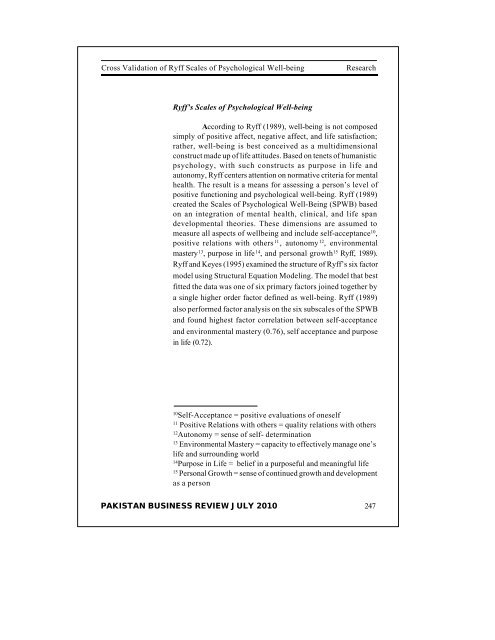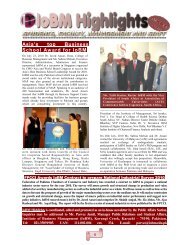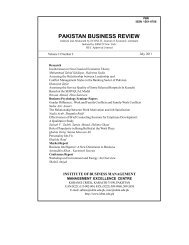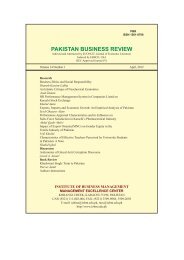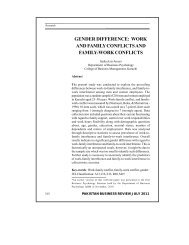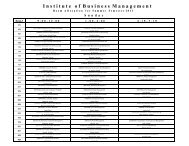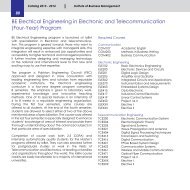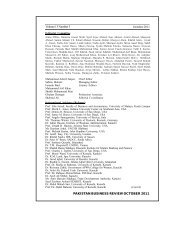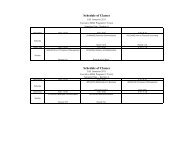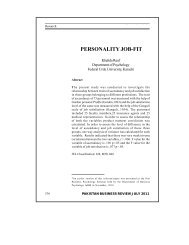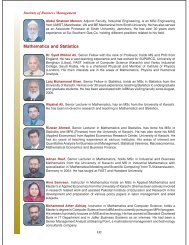Complete Volume - Institute of Business Management
Complete Volume - Institute of Business Management
Complete Volume - Institute of Business Management
Create successful ePaper yourself
Turn your PDF publications into a flip-book with our unique Google optimized e-Paper software.
Cross Validation <strong>of</strong> Ryff Scales <strong>of</strong> Psychological Well-being<br />
Research<br />
Ryff’s Scales <strong>of</strong> Psychological Well-being<br />
According to Ryff (1989), well-being is not composed<br />
simply <strong>of</strong> positive affect, negative affect, and life satisfaction;<br />
rather, well-being is best conceived as a multidimensional<br />
construct made up <strong>of</strong> life attitudes. Based on tenets <strong>of</strong> humanistic<br />
psychology, with such constructs as purpose in life and<br />
autonomy, Ryff centers attention on normative criteria for mental<br />
health. The result is a means for assessing a person’s level <strong>of</strong><br />
positive functioning and psychological well-being. Ryff (1989)<br />
created the Scales <strong>of</strong> Psychological Well-Being (SPWB) based<br />
on an integration <strong>of</strong> mental health, clinical, and life span<br />
developmental theories. These dimensions are assumed to<br />
measure all aspects <strong>of</strong> wellbeing and include self-acceptance 10 ,<br />
positive relations with others 11 , autonomy 12 , environmental<br />
mastery 13 , purpose in life 14 , and personal growth 15 Ryff, 1989).<br />
Ryff and Keyes (1995) examined the structure <strong>of</strong> Ryff’s six factor<br />
model using Structural Equation Modeling. The model that best<br />
fitted the data was one <strong>of</strong> six primary factors joined together by<br />
a single higher order factor defined as well-being. Ryff (1989)<br />
also performed factor analysis on the six subscales <strong>of</strong> the SPWB<br />
and found highest factor correlation between self-acceptance<br />
and environmental mastery (0.76), self acceptance and purpose<br />
in life (0.72).<br />
10<br />
Self-Acceptance = positive evaluations <strong>of</strong> oneself<br />
11<br />
Positive Relations with others = quality relations with others<br />
12<br />
Autonomy = sense <strong>of</strong> self- determination<br />
13<br />
Environmental Mastery = capacity to effectively manage one’s<br />
life and surrounding world<br />
14<br />
Purpose in Life = belief in a purposeful and meaningful life<br />
15<br />
Personal Growth = sense <strong>of</strong> continued growth and development<br />
as a person<br />
PAKISTAN BUSINESS REVIEW JULY 2010<br />
247


